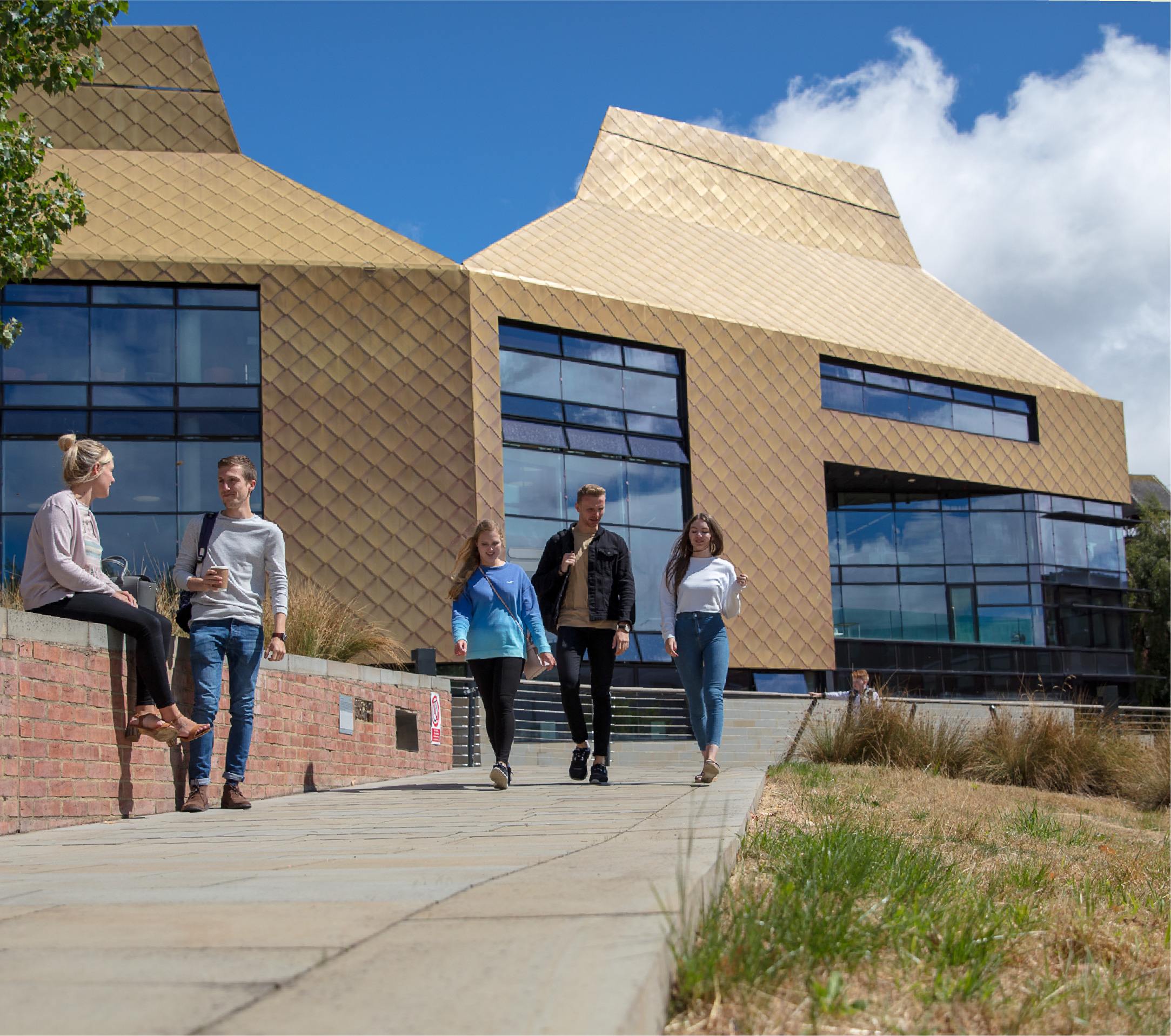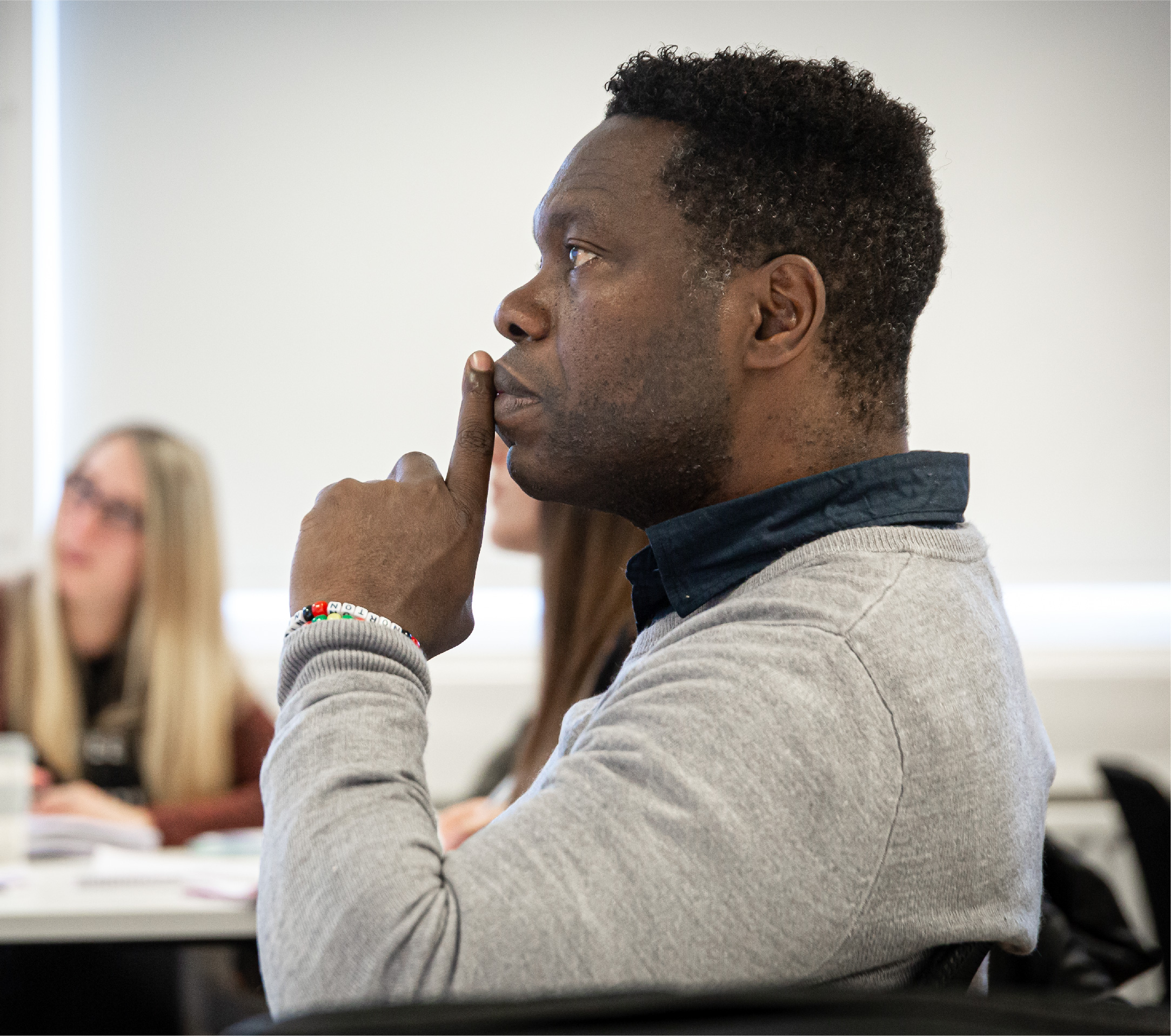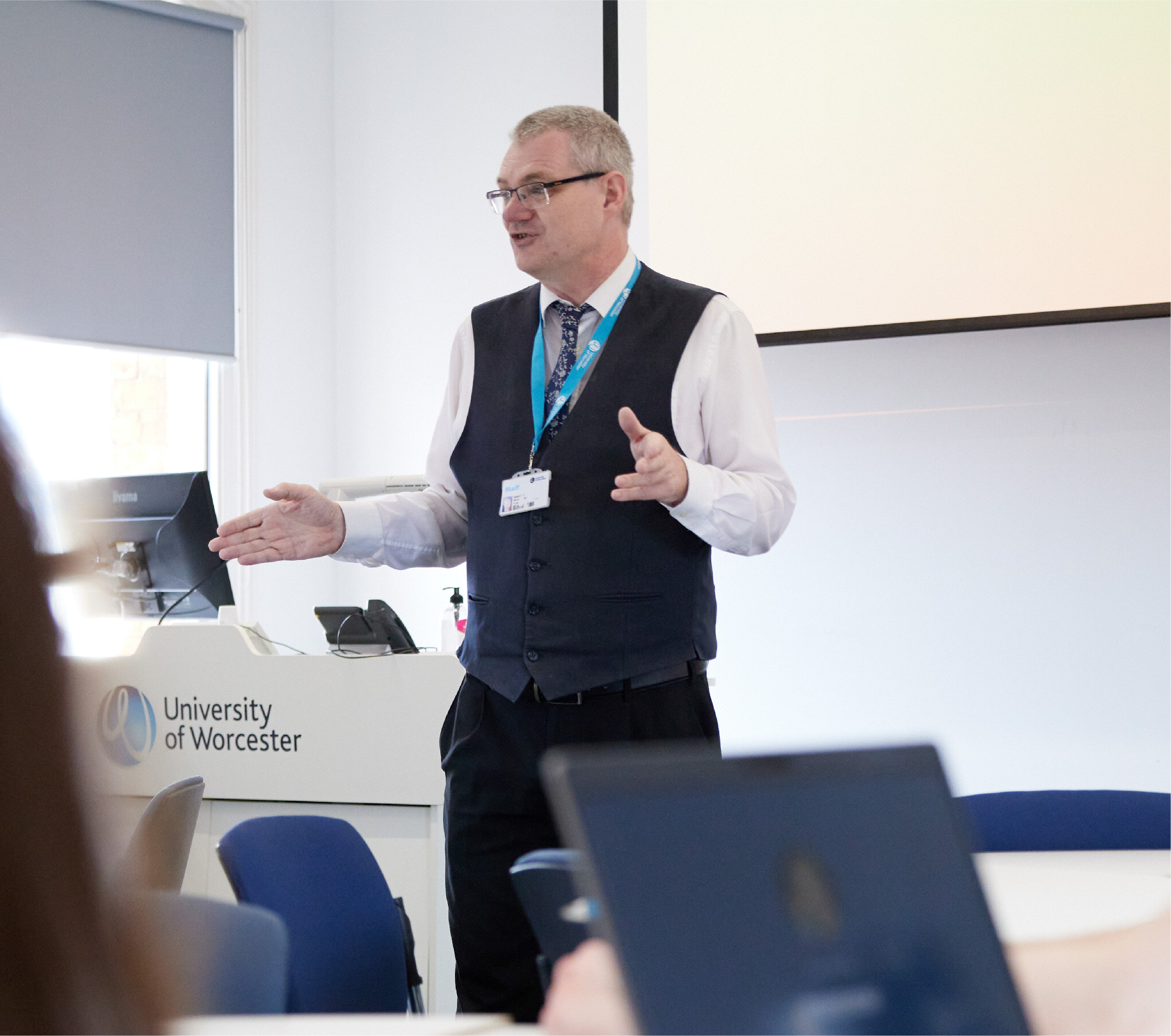Study the psychological and neuro-scientific processes that underpin activities such as thinking, reasoning, memory and language. Our career-focused assessments will prepare you for the challenges facing global societies, including dementia, mental health and high-risk workplaces. You’ll be equipped with the skills and experience to make a difference.
The course is professionally accredited by the British Psychological Society (BPS) and, providing you achieve at least a 2:2 in your degree, you will be eligible for Graduate Membership of the BPS and the Graduate Basis for Chartered Membership (GBC), the first step to becoming a Chartered Psychologist.
BPS accreditation is both an important hallmark of quality that is extensively acknowledged by employers in the field, and an essential stepping-stone if you are looking to progress to become a Chartered Psychologist after graduation.
Taking a BPS accredited course is necessary if you wish to pursue a career in psychology or in the wider psychological workforce. For information on the benefits of studying an accredited course, visit the BPS website.
First for jobs
The University of Worcester is first in the UK for sustained employment, further study or both, five years after graduation (excluding specialist institutions) - Longitudinal Educational Outcomes Survey 2024. Read more.
Overview
This course is professionally accredited by the British Psychological Society and has a strong practical focus that will build your professional skills, enhance your CV and get you noticed by employers.
It will equip you with an in-depth understanding of the fascinating field of psychology and train you to apply your knowledge in real-world settings.
You'll initially study a broad range of topics, which cover the core areas such as social, biological, cognitive and developmental psychology. As you progress through the degree you will be able to focus more on your specific interests, with optional modules and research projects.
Some of these topics include:
- Language and memory
- Social interaction, communities and activism
- Harassment, abuse and aggressive behaviour
- Mental health and neurodiversity
- The ageing brain
- Cyberpsychology
You’ll work in our modern labs to gather evidence and test ideas. We’ll teach you how to design studies, analyse data, and interview people to gain a deep psychological understanding of their experiences. These skills will prepare you for your future career.
In your final year, you will also have the chance to study advanced topics in psychological science and conduct a piece of original research under the supervision of a member of academic staff in your dissertation module.
You will develop your ethical understanding and cultural competence, both as a scientist and as a citizen. You will learn how to apply critical thinking and problem-solving skills and develop the capacity to make a positive contribution to society.
Placements
Our friendly, supportive department has strong links to the NHS and private sector. So everything you learn is up to date and industry-relevant
We work closely with the University's Careers and Employability team, arranging placements, both paid and voluntary, with many local and national organisations – including the NHS, the BPS, West Mercia Police Constabulary, Hereford & Worcester Fire and Rescue Service, Worcestershire County Council and HMP Aylesbury.
You can also take part in workshops devoted to CV writing, interview skills, recruitment and assessment techniques. You'll have the chance to talk to guest speakers and visit potential employers – as well as getting help to apply for work and postgraduate study.
Course content
Each year you will study a mix of mandatory and optional modules. This flexible course lets you explore different subjects and career paths in psychology before choosing to specialise in your final year.
Optional modules will run if they receive enough interest. It is not guaranteed that all modules will run every year.
Optional modules
Careers
You’ll graduate as a well-organised, confident communicator, with excellent analytical and critical thinking abilities.
Psychology graduates now work in every area of society, using their numeracy, IT literacy, communication and problem-solving capabilities to add value in their professions.
Understanding human behaviour is not only fascinating but is highly valued in various contexts – from the diagnosis and treatment of mental health problems to the improvement of performance at work or in sport.
Now, as much as ever, there is a need to ensure that there is enough capacity to promote psychological wellbeing and treat and prevent mental health conditions.
This BPS accredited degree is the first step towards pursuing a professional career in Psychology. Our graduates are highly successful in securing good jobs in many different fields, from counselling to advertising, to working in the NHS or the criminal justice system.
Specialisms
To practice as a psychologist, you'll need to complete an accredited postgraduate qualification in your chosen specialism, these include:
- Clinical psychology
- Counselling psychology
- Educational psychology
- Forensic psychology
- Occupational psychology
- Sport and exercise psychology
You can find out more about the different specialisms and postgraduate training from the British Psychological Society (BPS).
Future jobs
Jobs where your degree would be useful include:
- Human resources officer
- Market researcher
- Advertising executive
- Careers adviser
- Counsellor
- Education consultant
- Mediator
- Neuroscientist
- Policy officer
- Border Force officer
- Social researcher
Further study
Our course also provides the perfect foundation for further study of professional psychology, including on our specialised courses:
Course highlights
Teaching and assessment
Teaching is a mix of interactive seminars, lectures, one-to-one tutorials and practical workshops. We use interactive polls and quizzes, online/virtual experiments and online discussion boards to keep you involved throughout.
Evaluation is not all about exams, you’ll be assessed on your case studies, posters and public communications. Showing you can apply your knowledge to real world problems or cases.
Teaching and assessment contents
Students are taught through a combination of different learning and teaching methods. Lectures allow for the presentation and introduction of key topics, including both traditional and contemporary sources, which allow students to begin their learning. This is then supported by seminars that enable the discussion and development of understanding of topics covered in lectures. Subject-specific skills are the focus of practical classes and workshops (for example, understanding statistical data analysis).
The course also has a keen focus on experiential learning, as there is good evidence that this can greatly enhance the student learning experience. Therefore, such methods will be used such as problem-based learning, whereby students will apply theory and content from psychology to address real-world, global issues (e.g. the role of AI in the workplace, tackling climate change and global pandemics). Such global issues will be themes that run through the course, and as such will be covered elsewhere in other learning and teaching.
Furthermore, the role of research in the learning and teaching methods of this course will be central to all areas. Such research-informed teaching and learning will include practical research classes where students put into practice research methods they have learnt as well as focusing on research in directed study, group activities, assessments and problem-based learning.
The University emphasises enabling students to develop independent learning capabilities that will equip them for lifelong learning and future employment, as well as academic achievement. A mixture of independent study, teaching and academic support from Student Services and Library Services, and the Personal Academic Tutoring system enables students to reflect on progress and build up a profile of skills, achievements and experiences that will help them to flourish and be successful.
In addition, meetings with Personal Academic Tutors (PAT) are scheduled on at least four occasions in the first year. This will include two group sessions as part of modules, and individual meetings. Students are scheduled to meet their PAT on three occasions in each of the other years of a course.
Meet the team
Just a few staff members from the wider team of psychology lecturers.
Entry requirements
UCAS tariff points required: 112
| Qualification | Grade |
|---|---|
| A-level | BBC |
| BTEC National Extended Diploma | DMM |
| T-level | Merit |
We do accept Access to HE Diplomas and other qualifications which may not exactly match the combinations above. Work out your estimated points with the UCAS tariff calculator.
Any questions?
If you have any questions about entry requirements, please call our Admissions Office on 01905 855111 or email admissions@worc.ac.uk.
Fees
Fees contents
UK and EU students
The Government has announced that it will increase tuition fees and maintenance loans by 3.1% from the 2025/26 academic cycle. Subject to approval, the University intends to increase our tuition fees in line with this and as per our terms and conditions. This means that from September 2025 the standard fee for full-time home and EU undergraduate students on BA/BSc/LLB degrees and FdA/FdSc degrees will be £9,535 per year for new and continuing students.
For more details on course fees, please visit our course fees page.
International students
The standard tuition fee for full-time international students enrolling on BA/BSc/LLB degrees and FdA/FdSc degrees in the 2025/26 academic year is £16,700 per year.
For more details on course fees, please visit our course fees page.
How to apply
How to apply contents
Applying through UCAS
UCAS is the central organisation through which applications are processed for full-time undergraduate courses in the UK.
Read our how to apply pages for more information on the application process, or if you’d like to apply for part-time study.
- Psychology BSc (Hons) - C800
Contact
If you have any questions, please get in touch. We're here to help you every step of the way.

Admissions Office
admissions@worc.ac.uk01905 855111"You're not just a number here. The lecturers have all the time in the world for you."
More to explore
Open Days
Visiting us is the best way to get a feel for student life at the University of Worcester.

The City of Worcester
Worcester is a welcoming university city with great transport links and plenty of student parking.

Accommodation
Benefit from our accommodation guarantee. We have rooms on campus to suit every budget including en-suite options.















